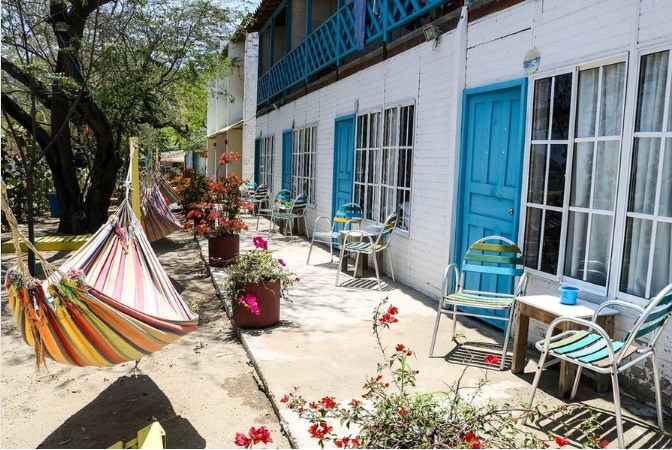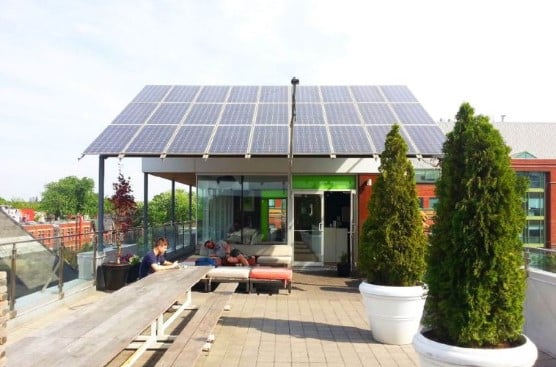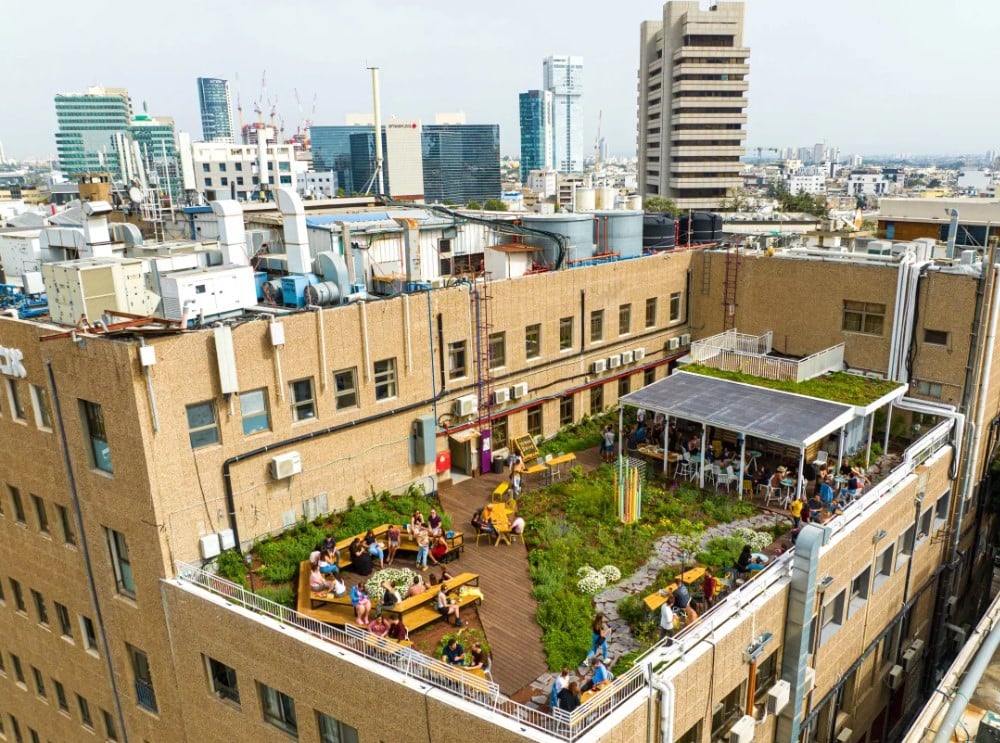Environmental Impact Pillar
Environmental impact covers air and water pollution, solid waste management, ecosystem management, maintenance of biodiversity, and the protection of natural resources, wildlife, and endangered species. This pillar supports hostels in reducing the impact they have on the environment.
What's covered in Environmental Impact?
Conserving Resources
Environmental purchasing policy: This policy should guide your organisation to buy products with a reduced negative effect (or increased positive effect) on the environment.
Environmentally friendly products: Introduce products that are designed to have little or no damaging effect on the environment.
Recyclable packaging: Packaging made of materials that can be used again, usually after processing. Recyclable materials include glass, metal, card, paper and – increasingly – certain plastics.
Energy conservation: Reducing energy consumption. This may include unplugging appliances when not using them, installing LED lights, ensuring appliances are energy efficient, and insulating the building to use less heat.
Water conservation: Using water efficiently to reduce unnecessary water usage.
Reducing Pollution
Greenhouse gas emissions: Reduce the use of gases that trap heat in the earth's atmosphere.
Transport: Encourage the use of public transport, walking, cycling, car sharing, or other sustainable methods of getting to and from the hostel.
Wastewater: Implement methods to reduce, reuse or recycle water wherever possible. Always ensure wastewater is treated properly and released safely.
Solid waste: Document the hostel's plan for recycling, reusing, composting, or disposing of waste correctly.
Harmful substances: There should be no environmentally harmful substances used at the hostel.
Minimise pollution: Track the hostel's pollution sources (including noise, light, runoff, erosion, ozone-depleting substances, air, water and soil contaminants).
Conserving Biodiversity, Ecosystem and Landscapes
Biodiversity conservation: Protect and manage biodiversity, to ensure long-term sustainable benefits.
Invasive species: Do not introduce any organism that is not indigenous, or native, to a particular area. Invasive species can cause great economic and environmental harm.
Visits to natural sites: Educate guests and staff on the natural sites within the local environment.
Wildlife interactions: Ensure that hostel activities do not harm any free-roaming wildlife.
Animal welfare: Never acquire, breed or hold any wildlife captive.
Wildlife harvesting and trade: Commit to never harvesting, consuming, displaying, selling or trading wildlife species.
Hostels taking action

Twentytu, Spain
"[…] Rental and tours of bicycles and scooters to visit Barcelona in a healthy and 0 polluting way; Grey water system, which recovers water from showers and sinks to treat it and reuse it in the toilet cisterns..."

Playa del Ritmo Beach Hostel & Bar, Colombia
"[…] we have recognized and protected this mangrove, a refuge for migratory birds coming from the north of the continent […]"

Planet Traveler Hostel, Canada.
"[…] we’ve utilised cutting-edge techniques to reduce carbon production, energy use, and our overall impact on the planet."
Benefits
- Efficiency: Improve the eco-efficiency of the property by reducing the amount of resource used to carry out the same service, resulting in reduced costs.
- Income: Generation of new sources of income such as the identification of waste that can be reused by other companies as raw materials.
- Participation: Within the value chain of other organisations or companies that have begun to include environmental clauses in their purchasing and contracting processes.
- Innovation: Development of innovative products and services through the incorporation of the environmental variable in the design process, can differentiate your hostel from competitors, also enabling access to new markets.
- Reputation: Prioritising environmental impact improves reputation, which helps attract more customers, as well as improving loyalty and therefore return visitors.
Self-Assessment for Environmental Impact Pillar
- Has the hostel reviewed its suppliers and started buying products with returnable or recyclable packaging?
- Have you reviewed the hostel’s energy consumption by type in the last 2 years? Has the hostel taken measures to minimise total consumption?
- Does the hostel strive to reduce water consumption and ensure sustainable use?
- Have you minimised the hostel’s greenhouse gas emissions? This can be done using the hostel's own data management system or the data collection tool provided by Hostelworld.
- Does the hostel have a waste management plan to recycle, reuse, compost or properly dispose of waste?
- Does the hostel measure the amount of solid waste disposed of, including food waste, measured by type? Do you measure the amount of plastic that is reused in the hostel?
- Do you educate guests and staff about natural sites and the local environment to ensure proper behaviour and avoid disruption?
- Does the hostel buy, breed, or keep in captivity any wild animal?

